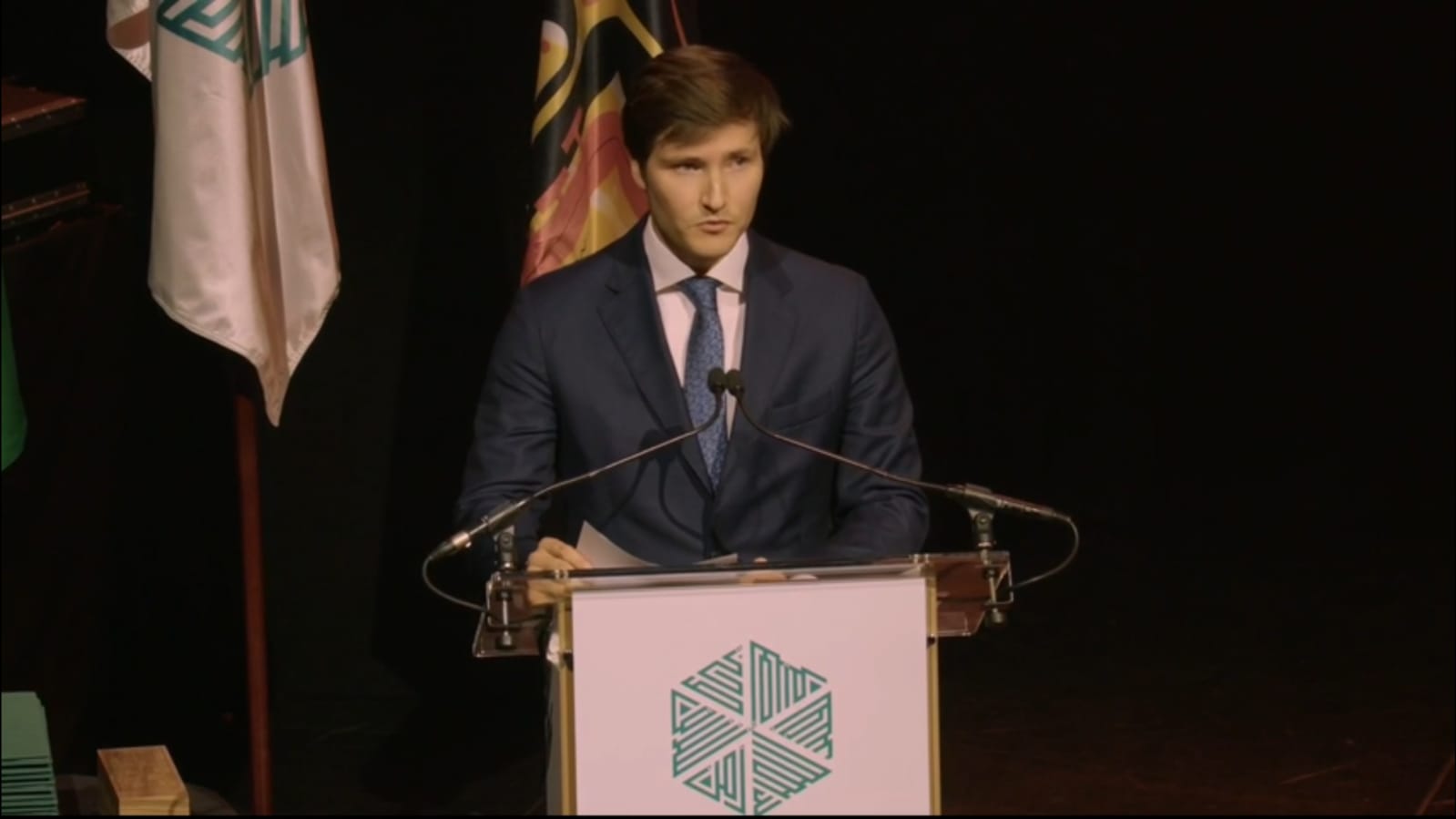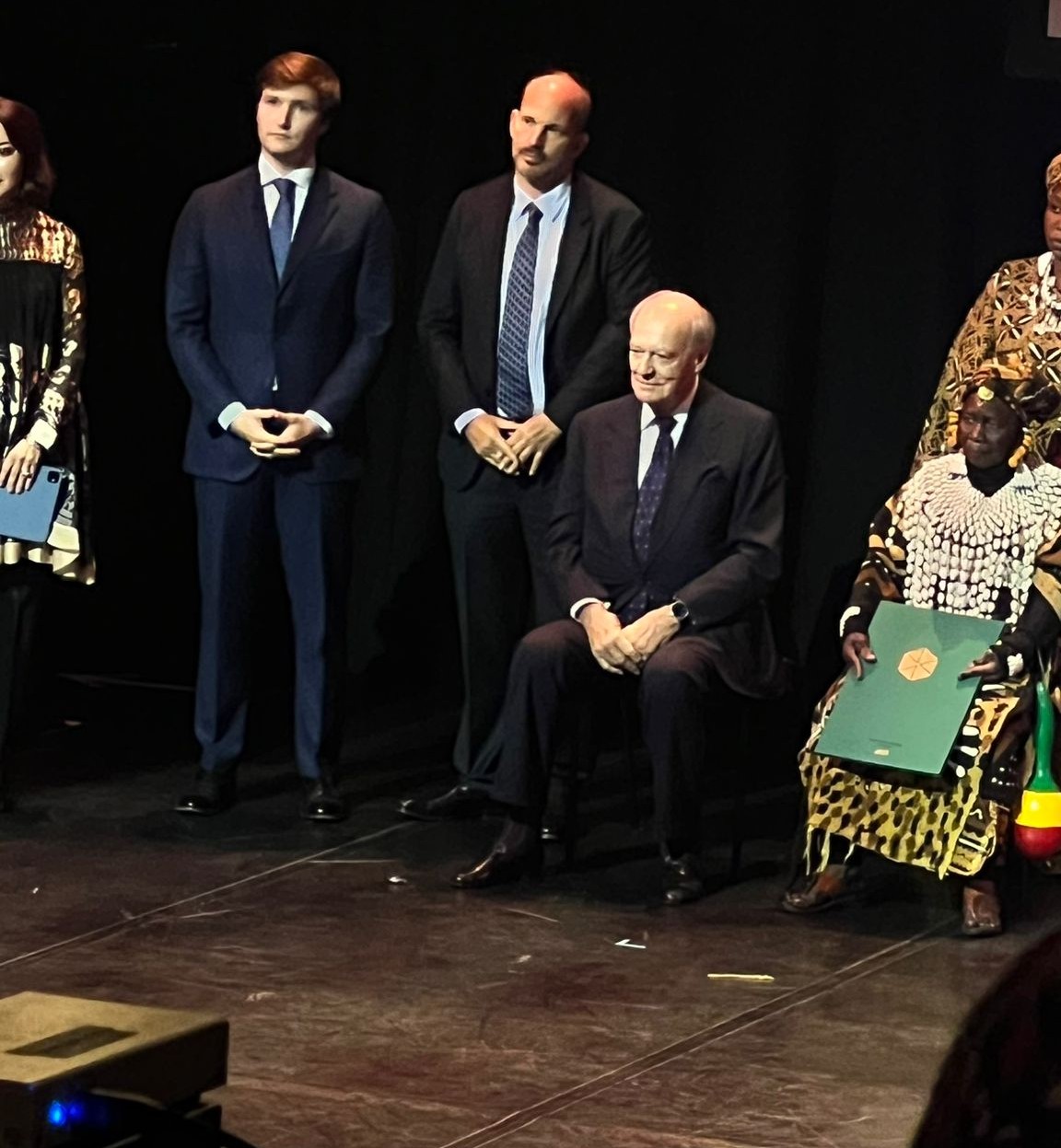Welcome to a special edition of the Ismaili Update from the Aga Khan Music Awards 2025 in London. The Awards opened with two sold out concerts by the Triveni Quartet paying tribute to Ustad Zakir Hussain, with Prince Amyn, Prince Hussain, Princess Fareen, and Prince Aly Muhammad in attendance. Join our host Safiyya Merali for the highlights — and stay tuned for more updates!
Watch video: https://www.youtube.com/watch?v=6LKXiLp ... he.ismaili
***********
Triveni Quartet mesmerises at the Ismaili Centre London

Prince Amyn, and Prince Aly Muhammad applaud the Triveni Quartet, celebrating their mesmerising performance.Photo: Sarfaraj Khorasi

The Triveni Quartet captivated the audience at the Ismaili Centre London.Photo: Sarfaraj Khorasi

Fairouz Nishanova, Director of the Aga Khan Music Programme, explained the outline of the four-day festival to guests.Photo: Beth Chalmers

Naushad Jivraj, President of the Ismaili Council for the UK, delivered a welcome address.Photo: Akbar Hakim

The Triveni Quartet captivated the audience at the Ismaili Centre London.Photo: Beth Chalmers

The Triveni Quartet spoke with Prince Aly Muhammad, Prince Amyn and Fairouz at The Ismaili Centre London.Photo: Akbar Hakim

Prince Amyn and Prince Aly Muhammad pose for a group photo with the Triveni Quartet, members of the late Zakir Hussain's family, and Fairouz Nishanova, at The Ismaili Centre London.Photo: Akbar Hakim

Prince Hussain and Princess Fareen applaud the Triveni Quartet, celebrating their mesmerising evening performance.Photo: Akbar Hakim

The Triveni Quartet captivating the audience during their evening performance.Photo: Akbar Hakim

Prince Hussain, Princess Fareen, and the audience at the Ismaili Centre London rise for a standing ovation of the Triveni Quartet's evening performance.Photo: Akbar Hakim
A luminous tribute to the late Zakir Hussain across two shows yesterday opened the Aga Khan Music Awards 2025 with extraordinary displays of Indian classical virtuosity. Prince Amyn, Prince Hussain, Princess Fareen, and Prince Aly Muhammad attended, alongside local officials, delegates from the culture sector, and music enthusiasts.
The concerts were also attended by members of Ustad Zakir’s family. Widely regarded as the greatest tabla player of his generation, the maestro contributed to popularising Indian classical music to a global audience. At the Aga Khan Music Awards in Muscat in 2022, he was honoured with the Lifetime Achievement Award by Prince Amyn.
Naushad Jivraj, President of the Ismaili Council for the UK, welcomed guests to the Ismaili Centre. “We are honoured,” he said, “to welcome musicians whose music, as it echoes through these walls, reminds us that performance can weave the intricate and the improvisational into a single, living tapestry—bridging cultures, melodies, and rhythms.”
Ahead of the performances, Fairouz Nishanova, Director of the Aga Khan Music Programme, explained the outline of the four-day festival celebrating sounds from Muslim cultures, and spoke of this year’s host city.
“London’s role as a crossroads where global cultures continue to evolve and inspire, make it the appropriate Western city to host an unprecedented celebration of music from the world of Islam,” she said.
The Triveni Quartet—comprising Fazal Qureshi on tabla, Kala Ramnath on violin, Jayanthi Kumaresh on saraswati veena, and Anantha Krishnan on mridangam—presented a musical conversation deeply rooted in classical tradition yet thrillingly spontaneous. The ensemble’s name, derived from the mythical confluence of three sacred rivers in India, thus proved apt.
Opening with the doleful sounds of the violin, the melodic veena soon joined in, followed by the tabla and mridangam in playful yet precise exchanges, drawing audible bravos from the audience. This was Indian classical music as Ustad Zakir envisioned it: not as a museum piece, but as living, breathing art capable of constant renewal.
https://the.ismaili/us/en/news/triveni- ... tre-london



























